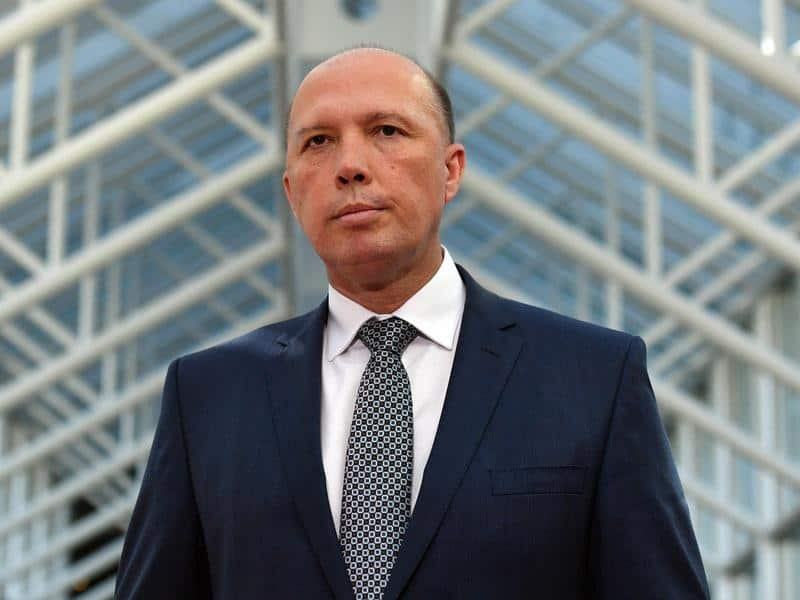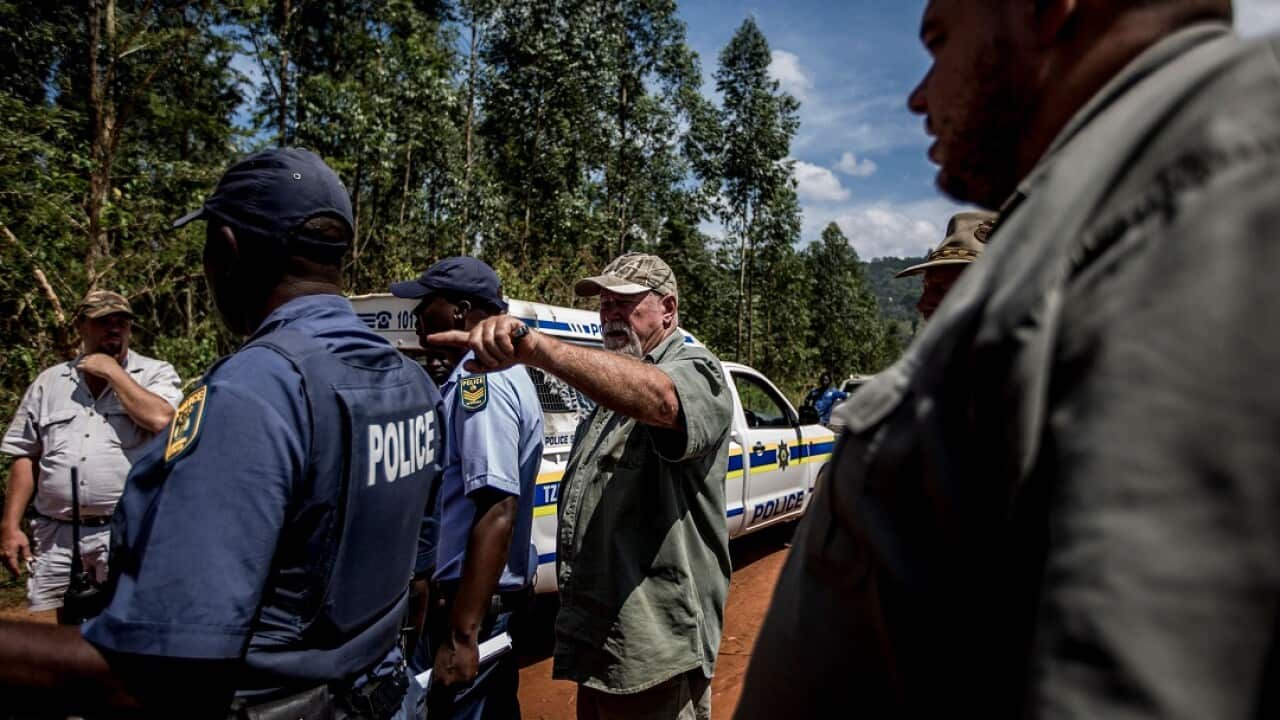Home Affairs minister Peter Dutton sparked controversy last month when he to help persecuted white South African farmers come to Australia as refugees.
Since then, the government has , which allows anyone to apply and grants visas on the basis of need.
But some members of the government do support a special intake for South Africans, similar to the Abbott-era intervention that welcomed an extra 12,000 Syrians and Iraqis fleeing a brutal war with Islamic State in their homeland.
Mr Dutton says white South Africans face "horrific circumstances" at home. But who are these farmers, really?
After apartheid
Large areas of present-day South Africa were colonised by both the Dutch and the British, starting in the 17th century.
Social and economic divides between white and non-white people had existed since the arrival of the Europeans but were legally codified in the mid-20th century with the apartheid system.
Apartheid prescribed everything from where people could live to where they could work and who they could have a relationship with. Although the system ended in 1994, its effects are still being felt today.
"It's a very deep structural problem," Ian Goldin, who served as a senior economic adviser to former President of South Africa Nelson Mandela recently told the New York Times.
Latest census figures found that the racial makeup of South Africa today is 76.4 per cent 'black African', 9.1 per cent 'white', 8.9 per cent 'coloured' and 2.5 per cent 'Asian'.
Farming in South Africa
Throughout the apartheid years, the land most suitable for farming was reserved for the white population. And white farm owners are still the majority today.
"The most productive, large-scale commercial farms in South Africa are almost all white-owned," Australian National University international law expert Associate Professor Jolyon Ford told SBS News. Meanwhile, the economic change promised by Mr Mandela's party, the African National Congress (ANC), when apartheid ended has been even slower in the countryside than in cities.
Meanwhile, the economic change promised by Mr Mandela's party, the African National Congress (ANC), when apartheid ended has been even slower in the countryside than in cities.

South African farmers train to use firearms to defend themselves. Source: Getty
Consequently, black farm workers are among South Africa's poorest groups.
A culture of violence
South Africa's murder rate remains one of the highest in the world, according to a 2017 survey undertaken by the Institute of Race Relations.
The survey found that in 2015-2016, there were 51 South Africans murdered every day. Although this is a drop from 1994, when that number was 71.
Institute of Race Relations crime analyst Kerwin Lebone said that "South Africans live with horrific levels of violent crime".
White farmers targeted?
AfriForum, a rights group that represents white farmers, describes the occupation as one of the most dangerous jobs in the country.
It claims a white farmer is twice as likely to be murdered as a policeman, and four times as likely as a private citizen.
And some deaths are reported to have been brutal.
"Some of the murders have been accompanied by gratuitous violence and torture that can only be explained as racial hatred," ANU's Jolyon Ford said.
AfriForum's vice president Ernst Roets told AFP last year: "Farmers are living in remote areas, they are far from police stations."
"There are political factors that play a role here. We are concerned about hate speech, political leaders who ... would say for example 'the white farmers should be blamed for everything'."
In 2012 then-President Jacob Zuma made headlines when he sang a struggle-era song containing the words "shoot the farmer". Some of South Africa’s predominantly white commercial farmers have gone as far as to brand the farm killings a genocide. White South African farmer Pauli, who declined to give her surname, echoed these concerns.
Some of South Africa’s predominantly white commercial farmers have gone as far as to brand the farm killings a genocide. White South African farmer Pauli, who declined to give her surname, echoed these concerns.

A protest against murders of white farmers in Cape Town in 2017. Source: Getty
"We're being hunted," she told AFP.
This has led some white farmers to become increasingly militant. Last year, some supporters flew the flag of the white, apartheid-era government during a protest against farm murders.
The government denies that white people are deliberately targeted and says farm murders are part of South Africa's wider violent crime problem.
White farmers are also concerned about land redistribution - the ANC party is planning new laws that will allow the government to redistribute farmland without paying compensation, in an escalated push to give black South Africans more access to the land.
Help from a 'civilised country'
Mr Dutton said Australia was investigating what visas can be offered to white South African farmers who are facing violence and land seizures.
He said the farmers deserve "special attention" and need help from a "civilised country" like Australia.
"If you look at the footage and read the stories, you hear the accounts, it's a horrific circumstance they face," Mr Dutton told the Daily Telegraph. He has directed the Home Affairs department to explore whether the farmers can be accepted into Australia through refugee, humanitarian or other visas, including the in-country persecution visa category.
He has directed the Home Affairs department to explore whether the farmers can be accepted into Australia through refugee, humanitarian or other visas, including the in-country persecution visa category.

Peter Dutton has offered to help white South African farmers. Source: Getty
Should visas be granted?
Mr Ford said the situation was more complicated than Mr Dutton described.
He said there was an "alarming rate" of violence against white South African farmers but it was important to realise that "it's a very violent country, with a very high youth unemployment rate ... it's awash with small arms".
"[And] the overwhelming majority of victims of violent crime are poorer black people."
RELATED READING

Cape Town calls off drought 'Day Zero'
And, he said, while race played a role in some of the attacks on white farmers, it was not always the case.
"If you're in a remote area and you're conspicuously more wealthy than those around you, then that's a criminal issue rather than a racial or political issue."
"The question is - is this a pattern of a persecution of a minority group in a multiracial society, in which case, you'd be using the Refugee Convention in an appropriate way?
"Or is it just a deeply violent society with racial overtones and high levels of crime?"
"In which case, why would [Mr Dutton] single out white South African farmers, as opposed to people in Colombia or Congo or anywhere which [has] high rates of violent crime. It's a really difficult one."
Additional reporting: AFP, Reuters

